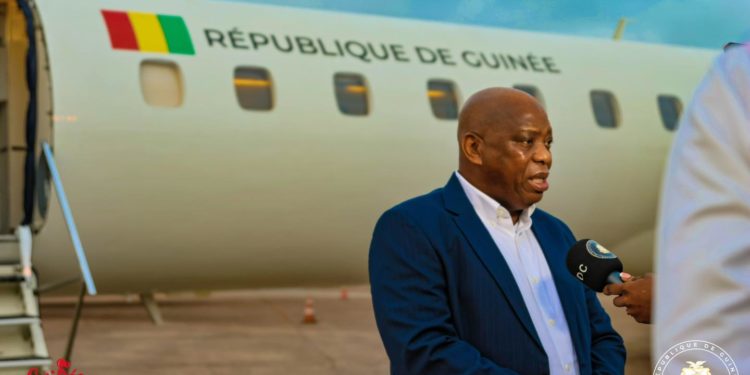Amid reports of xenophobic attacks on black Africans in Tunisia, Guinea has sent a plane to evacuate its nationals from the increasingly volatile North African nation.
The attacks reportedly directed generally at immigrants but especially those from Sub Saharan Africa, was sparked by comments attributed to the country’s president, Kais Saied, accusing immigrants of plotting to change his country’s racial identity.
President Saied was quoted last week denouncing undocumented sub-Saharan African immigrants and claiming that their influx into the country was part of a plot to change the country’s demographic make-up.
“The undeclared goal of the successive waves of illegal immigration is to consider Tunisia a purely African country that has no affiliation to the Arab and Islamic nations,” Mr Saied said in a comment made to a meeting of the country’s National Security Council.
A transcript of the full comment was later published on the website of the presidency. In it, he also accused immigrants of being behind rising crime in Tunisia, and he instructed Tunisian security forces to take urgent measures to halt it.
Rights groups, including those based in Tunisia itself, also condemned the comment, calling it “racist.”
The African Union also issued a statement condemning it.
The comment has raised fear among immigrants in the country over the potential for attacks on them.
The military government in Guinea is taking no chance on the safety of its citizens. On Tuesday, it dispatched a government delegation headed by the Minister of Foreign Affairs, African Integration and Guineans Abroad, Dr. Morissanda Kouyaté, to Tunis to bring back all Guineans who are willing to return home.
“This special humanitarian flight has been deployed by the Head of State, Colonel Mamadi Doumbouya, to urgently go to the rescue of Guineans living in the Maghreb country and to facilitate the repatriation of those who wish to do so,” the statement reads.
According to reports, the government of Ivory Coast, another Mano River Union nation, is also sending a chartered aircraft to Tunisia bring its its citizens home.
Dozens of the two countries’ nationals reportedly sought refuge in their embassies.
The AU Commission summoned the Tunisian Ambassador accredited to the bloc over the issue, for “urgent” explanation.
In a statement, the bloc described the comment as “shocking”, noting that it went against the spirit of the continental union’s founding principle, to which Tunisia belongs. It also called on Tunisia to honour its obligations under international laws to treat migrants with dignity.
Tunisia is one of three major transit points for migrants and refugees seeking to cross over to Europe through the Mediterranean Sea. The other countries are Morocco and Libya.
One estimate, from a survey by the National Institute of Statistics of Tunisia, put the number of migrants living in the country at 21, 500 as at 2021. Majority of these, according to NGOs, entered legally, to study or work.
Figures from the U.N. Refugee Agency indicate that there were about 9,000 refugees and asylum seekers in the country as of December 2022. According to the UN data, majority of these come mainly from countries like Eritrea, Sudan and Somalia.
But there are also indigenous black Tunisians, who are estimated to constitute about 15 percent of the country’s 12 million population. Many of them are descendants of former slaves.
Most of the migrants are from black Africa, many of whom end up making home in the transit countries, where they live in inhumane conditions. The authorities sometimes clampdown on them, as was the case earlier this month when dozens of migrants were detained, prompting widespread condemnations from rights campaigners.
According to campaigners, the government is using the migrant issue to distract attention from the political crisis in the country.
Tunisia has been in a political crisis since 2021, after the president was accused by his critics of staging a coup when he shut down parliament and assumed most of its powers.
“It is a racist approach just like the campaigns in Europe… the presidential campaign aims to create an imaginary enemy for Tunisians to distract them from their basic problems,” Ramadan Ben Amor, spokesperson for the Tunisian Forum for Economic and Social Rights, said in a statement.
A group of over two dozen rights groups last week issued an open letter in which they accuse the Tunisian government of violating its obligations under international law to protect refugees and human rights.
“At the same time, the Tunisian state turned a deaf ear to the rise of hateful and racist discourse on social networks and in certain media that specifically targets migrants of sub-Saharan African origin,” the letter partly reads.
The Tunisia-Africa Business Council also expressed “deep concern” in a statement on Thursday.
Organizations representing citizens of specific countries, like an association representing Nigerian students in the country, have been warning their members to be vigilant.






















